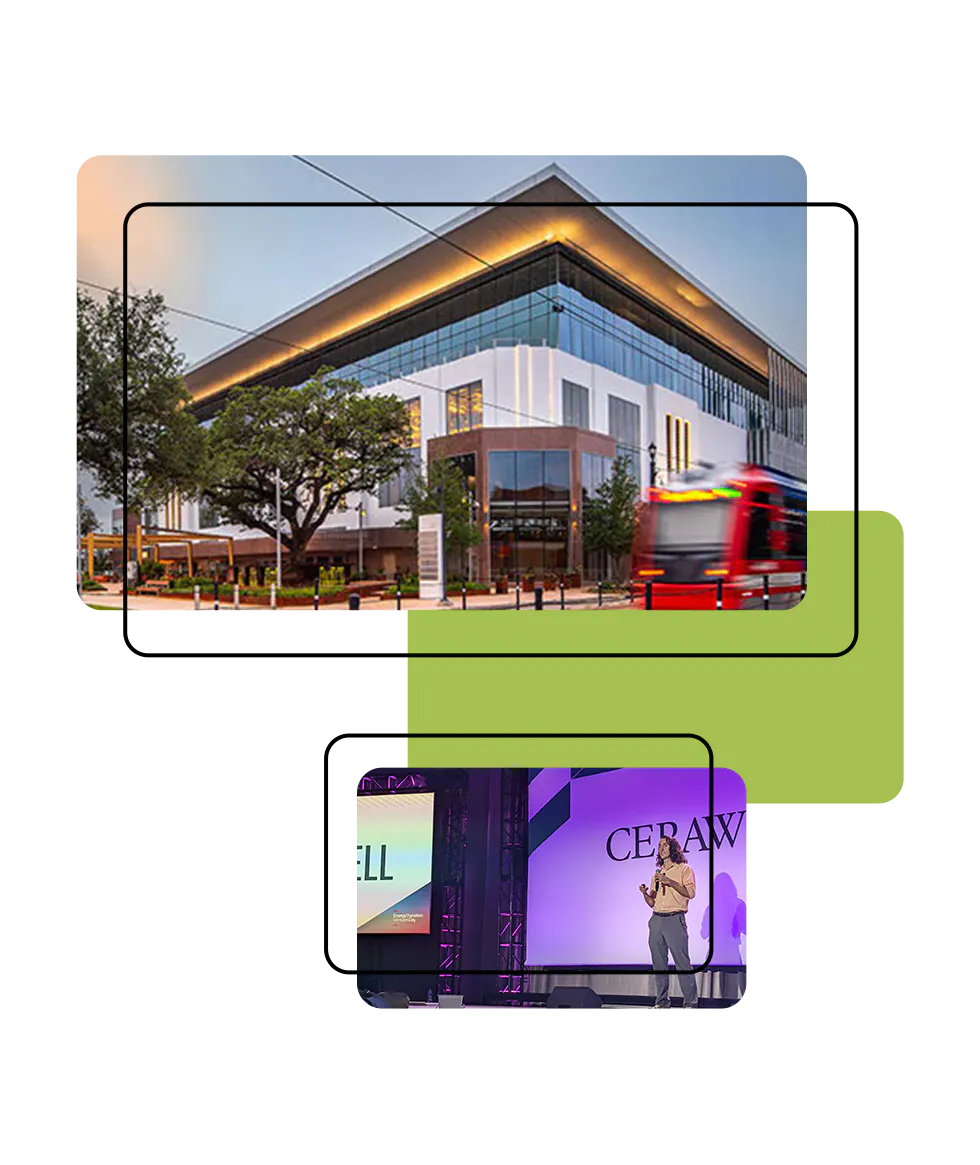
CLASS 3 | 2023
Meet the 14 Companies Innovating in Energy as Part of Class 3 During Demo Day on Sept. 21, 2023
Class 3 has been working hard to make big strides in moving their ventures forward. Through hundreds of mentor hours, countless speaker sessions and 1-on-1 coaching, they're ready to demonstrate the value of thier companies in accelerating the energy transition. We hope you'll join us at the 20th Annual Rice Alliance Energy Tech Venture Forum, where class 3 will give their Demo Day pitches.
Class 3 was selected based on alignment of the ventures’ near-term goals to scale their companies, leverage the Houston market, (a leader in the global energy transition), and the promise of their disruptive technology. Applications were analyzed by a screening committee consisting of 50+ industry experts, institutional investors, corporate VCs, energy leaders, and entrepreneurs.
From 4 countries and 7 states, the 15 ventures in Class 3 are driving innovation in advanced materials, biomass energy, carbon management/capture, digital technology for energy, energy efficiency, energy storage, hydrogen, solar energy, wind energy, and water purification.
The Rice Alliance Clean Energy Accelerator supports the success of emerging, tech-enabled ventures who are advancing decarbonization solutions and efficiency strategies that accelerate the transition to a clean energy economy. Read more about our founding story.


THE SELECTION PROCESS AND CRITERIA
The Rice Alliance Clean Energy Accelerator is best suited for seed stage to series A that have demonstrated feasibility of their technology/solution and are looking to scale or refine (on a Technology Readiness Level assessment, this would equate to Levels 3 to 7). The technology or innovation should serve one or more of our industry sectors. All of our startups include at least two active founders or co-founders, and while were looking for early-stage companies, startups needed to be officially registered or legally incorporated as a business.
Startups were selected based on our expertise and ability to support their needs and the following criteria:
- Innovation - is the technology scalable? Does it demonstrate promise for a sustainable competitive advantage? Having a prototype is very important and will be heavily considered in the evaluation process.
- Market - is the potential market size large enough for sustained business growth, and aligned with the expectations of possible funding sources?
- Strategy - Do you have quantifiable value propositions and a sound business model?
- Viability/Validation - Have you demonstrated your technology or ability to raise funding?
- Capability - Does the team have the ability to deliver on the identified opportunity? Have gaps been clearly identified? Do the founder's perceived needs align with CEA offerings?
The Rice Alliance Clean Energy Accelerator is for early-stage startups that contribute to significant energy efficiency improvements, are developing energy derived from renewable, zero-emissions sources or are curbing the environmental impact of all types of energy production, distribution or usage, or enabling progress toward net zero carbon.
- Phase I: Screening - a panel of industry experts evaluated the merits and commercial promise of each applicant company and made recommendations to accelerator leadership and XiRs.
- Phase II: Interviewing - companies advancing to this phase were invited to participate in a required team interview (virtual) conducted by accelerator leadership and XiRs.
- Phase III: Onboarding - accepted companies received an invitation roughly seven weeks from the application closing date. We had a 100% acceptance rate for Class 2.
CLASS 3 XiRs
The XiR supports clean energy companies through key milestone development and enables access across our network of advisors and service providers that enable progress toward commercialization. Each XiR had a "pod" of startups which the work with weekly. In addition, startups have access to nearly 70 mentors.